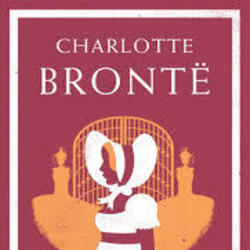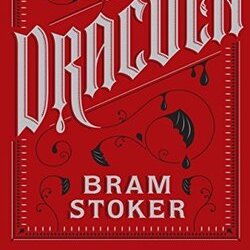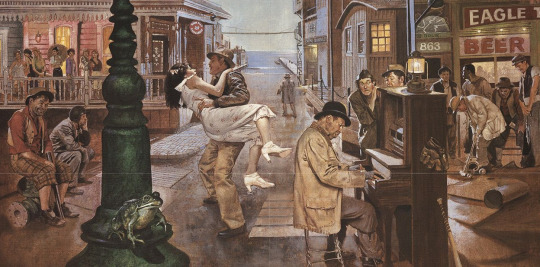#la follette
Explore tagged Tumblr posts
Text
The reason why marriage is "an incomparable protection to society" lies in the fact that the continuance of the power of the exploiting State depends upon the relative helplessness of its exploited subjects; and nothing renders the subject more helpless against the dominance of the State than marriage. For monopoly, under the protection of the State, has rendered the support of a family extremely difficult, by closing free access of labour to natural resources and thus enabling the constant maintenance of a labour-surplus. Where there is little or no land not legally occupied, access to the soil is impossible save on terms that render it, if not downright prohibitive, at least unprofitable. The breadwinner who has neither land nor capital is thus forced to take his chance in a labour-market overcrowded by applicants for work who are in exactly his position: they are shut out from opportunity to work for themselves, and obliged to accept such employment as they can get at a wage determined not by their capacity to produce, but by the number of their competitors. Not only is the wage-earner thus obliged to content himself with a small share of what his labour produces; he is forced to pay out of that share further tribute to monopoly in most of the things he buys. . . .
Such disadvantages tend not only to keep wages near the subsistence-level, but to keep opinions orthodox—or if not orthodox, unexpressed. For the wage-earner gets his living on sufferance: while he continues to please his employer he may earn a living, however inadequate, for himself and family; but if he show signs of discontent with the established order, by which his employer benefits or thinks he benefits, he is likely to find himself supplanted by some other worker whose need makes him more willing to conform, in appearance at least. . . . [T]he average wage-earner with a family to support will be under much greater pressure to dissemble than will the worker who has no family; for where the single worker risks privation for himself alone, the married worker takes this risk for his family as well. Nor does economic pressure operate only towards the appearance of conformity; for the person who has children to read and educate will be strongly impelled towards conservatism by his situation. If he can get along at all under the present order, the mere vis inertiae will incline him to fear for the sake of his family the economic dislocation attendant upon any revolutionary change, and to choose rather to keep the ills he has. . . .
Thus the economic conditions brought about by the State operate to make marriage the State's strongest bulwark; and those who believe that the preservation of the State, or of a particular form of it, is a sacred duty—their number among its victims is legion—are quite logical in taking alarm at the increasing unwillingness of men and women to marry, or if they do marry, to have children. They are logical not only because marriage and children make for endurance of established abuses, but because . . . it is important for the State to have as many subjects as possible, to keep up a labour-surplus at home and to fight for the interests of its privileged class abroad; that is, so long as industry is able to meet the exactions of monopoly and still pay interest and wages. . . .
-Suzanne La Follette, ‘Concerning Women’ in Alice S. Rossi, The Feminist Papers: From Adams to de Beauvoir
12 notes
·
View notes
Photo

“Winter of the World”, de Ken Follet
#winter of the world#ken follett#follett#argentina#subte#subway#instasubway#lectoras#girls reading#women reading#currently reading#la gente anda leyendo#leyendo#igerbooks#books#book#libros#amo leer#more books please#instabooks#reading#girls who read#girl who read#girls and books#books and girls#girls & books#books and coffee#books and tea#books & tea#books & candles
23 notes
·
View notes
Text










My top 10 books ever
#la confidential#jane eyre#the handmaid's tale#it#a storm of swords#game of thrones#the hunger games#ubik#code to zero#ken follett#brave new world#dracula#margaret atwood#james ellroy
12 notes
·
View notes
Note
Any third-party candidate in a post 1900 presidential contest who could have made a decent or average, if unspectacular, President of the USA?
Former President Theodore Roosevelt was a third-party candidate in 1912 against incumbent Republican President Taft and Democratic nominee (and eventual winner) Woodrow Wilson, so I think he's an obvious pick. Other than that, most of the major third-party candidates wouldn't have been great choices because they were racist protest nominees like Strom Thurmond or George Wallace. Ross Perot doesn't deserve to be compared with Thurmond or Wallace, but I don't think he would have been any good as President. Maybe Robert M. La Follette Sr., who did fairly well as a third-party challenger to President Coolidge and Democratic nominee John W. Davis in 1924?
#Presidents#Presidential Elections#Third-Party Presidential Candidates#Presidential Candidates#Third-Party Candidates#Politics#Political History#1912 Election#1924 Election#1992 Election#1948 Election#1968 Election#1972 Election#Theodore Roosevelt#Strom Thurmond#George Wallace#Ross Perot#Robert M. La Follette
6 notes
·
View notes
Text
Los pilares de la Tierra - Ken Follett
Durante años, la había adorado a distancia. La más constante imagen de ella en su pensamiento era la de la primera vez que la vio bajando las escaleras en el salón de Earlcastle y se dijo que debía de ser la princesa de un cuento.

0 notes
Text

Sourced from the 29 October 1924 issue of The Vilas County News; page 10; accessed via Chronicling America.
#daily#daily history#history#old news#old newspapers#old shit#vintage newspapers#please vote#presidential election#us elections#calvin coolidge#john w. davis#robert la follette
0 notes
Text

In the Swim
August 10, 1908
Bob La Follette beckons Cummins of Iowa and Bristow of Kansas to the U.S. Senate Radical Pool. Senatorial Courtesy covers her eyes as the men prepare to undress for the swim.
The caption reads 'Bob La Follette (Already In the Pool) - Come On In, Boys the Water's Fine.'
On August 6, the New York Times reported that presumed winners Cummins and Bristow would join forces with radical La Follette. A struggle between conservatives and radicals was predicted for the Senate of the 61st Congress.
See Also: Robert La Follette
From Hennepin County Library
Original available at: https://digitalcollections.hclib.org/digital/collection/Bart/id/5850/rec/2041
#charles bartholomew#political cartoon#robert la follette sr.#albert cummins#joseph bristow#united states senate
0 notes
Text
Failure ain't cheap
But progressives want to double down on more of the same! One might think that a poolside party atop the almost brand new, aptly named Lux apartment high rise on a warm evening in June might — as the guilt-ridden do gooders like to say — “build community.” Instead, 12 young people ranging in age from 14 to 23 were injured after party goers started shooting. Just one of three shootings over the…

View On WordPress
0 notes
Text
Practice English
share.libbyapp.com/title/1737049
View On WordPress
#Archetypes#Base#Base 10#bookporn#Britannia#English as a Second Language#ESL#Follett#giallo#La Cura#la source#metatempesta#Noir (e)/Giallo#Noir(e)#NYPL#practice English#Q#Series#sortilege#St. Georges#the Cave#The Mysteries#the Scribe#Windtalkers
0 notes
Text
LA ARMADURA DE LA LUZ (KEN FOLLETT)
La revolución está en el aire: 1792. Un gobierno despótico está decidido a convertir Inglaterra en un poderoso imperio comercial. Y, desde el otro lado del mar, suenan tambores de guerra mientras Napoleón Bonaparte comienza su ascenso al poder y prepara un violento plan para convertirse en emperador del mundo. Kingsbridge se asoma al abismo: los avances industriales se imponen de manera…
View On WordPress
0 notes
Text
When once a social order is well established, no matter what injustice it involves, those who occupy a position of advantage are not long in coming to believe that it is the only possible and reasonable order, and imposing their belief, by force if necessary, on those whom circumstances have placed in their power. There is nothing more innately human than the tendency to transmute what has become customary into what has been divinely ordained. . . .
She [woman] was humble and subservient, as a matter of fact, for an incredibly long time; so long that there exists a general suspicion even at the present day that there is something in her nature which makes her want to be subject to man and to live as it were at second hand. This thought would be even more alarming than it is, perhaps, if it were not true that men themselves have stood for a good deal of subjection during the world's known history. Chattel slavery and serfdom were abolished from the civilized world only at about the time that the subjection of women began to be modified; and men still endure, not only with resignation but with positive cheerfulness, a high degree of industrial and political slavery. The man who is entirely dependent for his livelihood upon the will of an employer is an industrial slave, and the man who may be drafted into an army and made to fight and perhaps die for a cause in which he can have no possible interest is the slave of the State. . . . What the slavery of men, as of women, implies is the existence of an economic and social order that is inimical to their interests as human beings; and it implies nothing more than this.
-Suzanne La Follette, ‘Concerning Women’ in Alice S. Rossi, The Feminist Papers: From Adams to de Beauvoir
6 notes
·
View notes
Text
I love the state level progressives too much. Such a shame that being an isolationist in public office during the World Wars was considered worse than being a flagrant adulterer by many.
#its not JUST a wisconsin thing#also a dakota and probably Minnesota thing#anyways v funny to have learned that the commies in the Milwaukee CIO helped push their enemy#bob la follette jr out of the senate and ended up giving joe mccarthy a surprise win#(they were trying to make WI a Dem state so they pushed their members to the dem primary#so La Follette got crushed by McCarthy in the Rep primary and then beat the Dems#because the Dems had been assuming they could take over the Progressive machinery)
0 notes
Text
Recensione di "La caduta dei giganti" di Ken Follett
“Credo che fosse convinta che era meglio morire piuttosto che rinunciare alla speranza di un’esistenza migliore”. L’ho incominciato e interrotto svariate volte, ma alla fine l’ho finito ed è stata una lettura incredibile. La caduta dei giganti, primo volume della The Century Trilogy, è un romanzo storico di Ken Follett che si sviluppa a partire dal 1911 e si conclude nel 1924, attraversando gli…

View On WordPress
#di che parla la caduta dei giganti#libri follett belli o no#primo libro the century trilogy#recensione la caduta dei giganti
0 notes
Text


La Follette Falls
#waterfall#landscape#forest#nature#beauty#photographers on tumblr#artists on tumblr#original photographers#original photography#photography#aesthetic#Washington#pnw#westcoastbestcoast#art#pacific northwest#explore#travel#cottagecore#naturecore#grandmacore#p
1K notes
·
View notes
Text
Writing Analysis: Cannery Row (Cultural References)

John Steinbeck’s Cannery Row (1945) opens with the following declaration:
“Cannery Row in Monterey California is a poem, a stink, a grating noise, a quality of light, a tone, a habit, a nostalgia, a dream” (1).
Set in a fictionalized version of Cannery Row in Monterey, California, Steinbeck uses his cast of homeless people, drunks and prostitutes to express profound truths about humanity.
Abacus (6): A counting device that was used before the creation of calculators.
Belles-lettres (64): A type of literary work, one that is usually expressed in essays, poetry and deals with intellectual subject matter.
Beret (123): A soft hat that has no bill and no brim. Often worn in the military.
Billings, Josh (61): The pen name for Henry Wheeler Shaw, a respected humorist of the 20th century.
Black Marigolds (171): A poem written by E. Powys Mathers.
Bloomer League (140): A baseball league that was comprised primarily of women that started during the early 1900’s.
Carborundum (90): Another name for silicon carbide, which is the sole chemical compound of carbon and silicon.
Chalmers (154): A type of car that was created and sold during the early 1900’s.
Chorea (144): An illness that causes involuntary movement in various parts of the body.
Collier’s (magazine) (139): Founded by Peter Collier, Collier’s Once a Week debuted in 1888 and went on to become one of America’s most popular magazines.
Count Basie (114): A prominent figure during the swing period of jazz, as well as a good example of big band style.
Dadaist (122): An artist or a writer who practiced Dada, a movement that rejected traditional art and contemporary culture.
Daisy Air Rifle (104): A brand of rifle created by the historic Daisy company.
Distemper (134): An infection in dogs that can be diagnosed through symptoms of a runny nose, poor appetite, and coughing.
“Fighting Bob” (111): A reference to Robert M. La Follette Sr. fight against Washington and other politicians who choose to enter WWI.
Ford Model T (61, 106): A truck built by Ford Motor Company.
The Great Depression (16): A result of the 1929 stock market crash, which left many Americans without money or jobs.
Great Fugue (163): A musical work by Beethoven.
Goiter (97): The enlargement of the thyroid gland.
Influenza (89): An infection more commonly known as the “flu.” It was responsible for claiming the lives of millions worldwide before effective vaccines were created to treat and prevent it.
Knights of Columbus (130): A Catholic organization that seeks to aid family members within the organization who are in financial need.
Knights Templar (130): A group of knights who originated in Jerusalem during the year of 1119. Though shrouded in mystery, the Knights Templar are believed to have protected the Holy Grail.
Laudanum (107): A mixture of opium and derivatives of alcohol.
Masonic Lodge (104): A meeting place for Freemasons or former Freemasons.
Mastoids (89): The skull bones that house the ear.
Mastoiditis (90): Mastoiditis occurs when an infection in the middle ear spreads to the mastoids and then causes an infection that produces fevers and headaches.
Monteverdi’s Hor ch’ el Ciel e la Terra (119): A song by the Italian musician Claudio Monteverdi, who lived in the 16th and 17th century.
Novena (88): A prayer that is said over a nine-day period that requests a special favor from God.
“Panama Pacific International Exposition of 1915” (111): The 1915 Worlds Fair that was held in San Francisco, California.
Petrarch (119): A famous writer of the 14th century who is credited with being the founding father of Humanism.
Point Lobos (64): A state reserve on the central coast of California in Monterey County.
Prohibition (72): A move by the United States government to reduce the amount of alcohol consumed in the United States through limiting individuals and businesses who sold alcohol.
Purse Seiners (67): Fishing boats equipped to fish with a purse seine, a kind of fishing net.
“Remember the Maine” (111): The sinking of the U.S.S. Maine, which was the catalyst for the Spanish-American War.
Rimbaud (124): A 19th century French writer who is most remembered for his contribution to the symbolist movement.
Robert Louis Stevenson (61): A Scottish author who is most famous for works such as Treasure Island and The Black Arrow.
Saturnalia (112): The week of December 17th-23rd during which a feast was held by the Romans to celebrate their dedication Saturn’s temple.
Scarlatti (129): Last name of Giuseppe Domenico Scarlatti, an Italian harpsichordist born during the 17th century who later moved to Spain and continued to practice music there.
Sculpin (135): A kind of small fish.
St. Francis (of Assisi) (144): A saint in the Catholic church who is known for his great love for God, animals, and the sick.
Treasure Island (64): A book written by Robert Louis Stevenson.
Vaudeville (109): A form of American variety entertainment that marked the beginning of popular entertainment as a lucrative business.
“White Sale” (103): A sale either of household goods, or when a store drastically reduces their prices for a short period of time.
Source ⚜ More: Writing Notes & References
#cannery row#john steinbeck#literature#writing analysis#writeblr#langblr#studyblr#writers on tumblr#writing prompt#poetry#spilled ink#dark academia#writing reference#poets on tumblr#writing inspiration#writing ideas#creative writing#writing inspo#writing resources
27 notes
·
View notes

